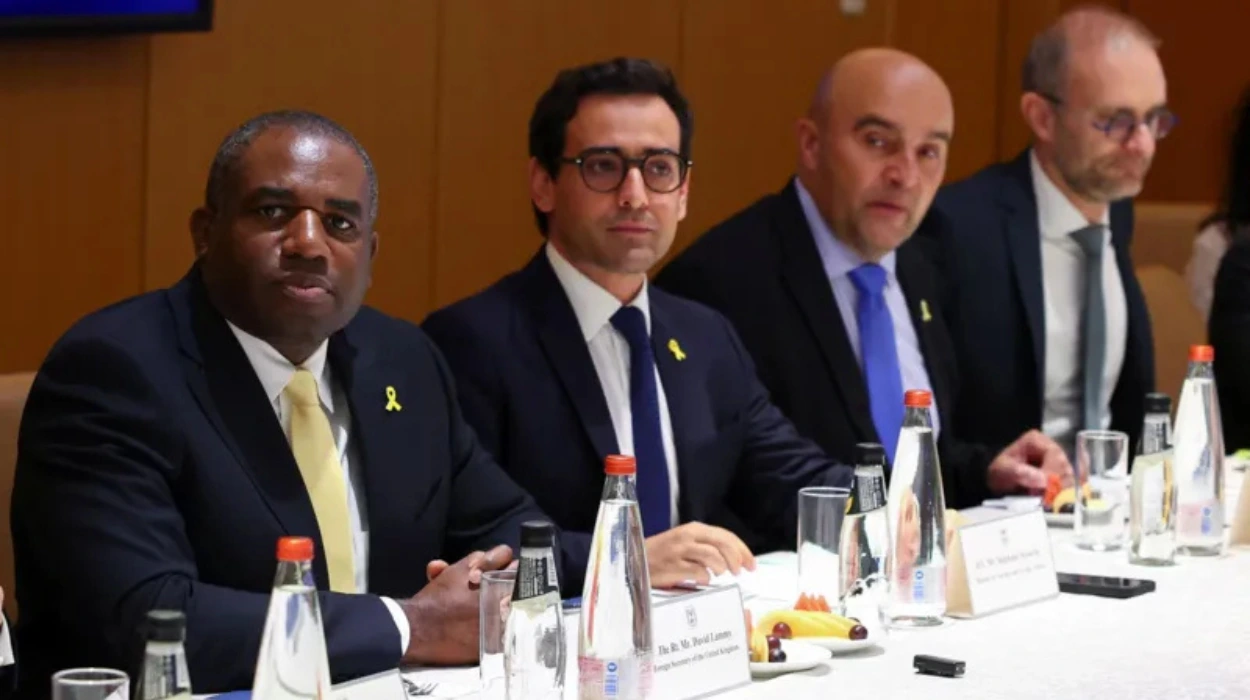The call for a ceasefire in Gaza has reached a critical juncture, with UK Foreign Secretary David Lammy emphasizing that “the time for a Gaza ceasefire deal is now.” This statement comes during a significant visit to Israel alongside French Foreign Minister Stéphane Séjourné—the first joint UK-France diplomatic mission in over a decade. Their discussions included meetings with Israeli officials and visits to the Occupied Palestinian Territories, underlining the urgency of the situation.
Diplomatic Efforts and Regional Tensions
Fresh negotiations for a ceasefire have begun in Doha, involving delegates from the US, Qatar, and Egypt who are engaging with an Israeli delegation. These talks are crucial, especially given escalating fears of a regional conflict that could involve Iran, following the assassination of Hamas leader Ismail Haniyeh in Tehran last month. Western nations are anxiously urging Iran to refrain from retaliation against Israel, which has not confirmed its role in Haniyeh’s killing.
The situation is further complicated by Hezbollah’s threats of retaliation for the Israeli airstrike that killed one of its top commanders in Beirut. The specter of an all-out regional war looms large over the ceasefire discussions, prompting urgent calls for peace.
The Need for Immediate Action
Lammy conveyed optimism, stating that Israeli ministers believe they are “on the cusp of a deal.” He insisted that the time to negotiate for the return of hostages, facilitate necessary aid to Gaza, and end hostilities is now. “The fighting must stop, and we must secure a deal that allows aid to flow in the quantities necessary,” he urged.
Despite some initial progress in the talks, Hamas has opted not to participate directly for the moment. Mediators are reportedly relaying messages between Hamas officials and the negotiating parties. The group has accused Israel of introducing new conditions that complicate a previously agreed-upon proposal backed by the US and other international stakeholders.
Rising Risks and Humanitarian Crisis
Highlighting the precarious nature of the situation, Lammy warned of a “dangerous moment for the Middle East,” where any Iranian attack could have catastrophic implications for the region. His counterpart, Séjourné, echoed this sentiment, stressing that it is “never too late for peace” and that efforts must be made to prevent a regional conflict.
The humanitarian crisis in Gaza has reached alarming proportions. According to the Hamas-run health ministry, the death toll in Gaza has surged past 40,000 since the outbreak of violence on October 7, which followed a deadly attack on Israel that claimed around 1,200 lives and resulted in the capture of 251 individuals. These figures, while contested by the Israeli government, are widely accepted by UN agencies and highlight the urgent need for a ceasefire.
Recent Violence and Settler Attacks
In a related context, Lammy condemned recent violence in the West Bank, where a Palestinian man was killed during a settler attack on a village. He described the scenes of destruction and chaos—burned buildings, Molotov cocktails, and attacks on residents—as “abhorrent” and called for accountability from Israeli authorities. Prime Minister Benjamin Netanyahu’s office responded by promising that those responsible for the riots would be brought to justice.
This violence comes amidst a noticeable spike in tensions following Hamas’s attacks, with extremist settlers increasingly targeting Palestinian villages. The Israeli military has launched a campaign aimed at dismantling Hamas in Gaza as a reaction to the earlier attack, further complicating the already fragile situation.
The Path Forward
As the international community watches closely, the urgency for a ceasefire deal cannot be overstated. The ongoing violence has not only devastated lives in Gaza but has also put immense pressure on regional stability. Achieving a ceasefire that allows for humanitarian aid to flow freely and addresses the plight of hostages is paramount.
The diplomatic efforts in Doha represent a crucial opportunity for all parties involved. Negotiators must navigate complex political landscapes, especially in light of recent hostilities and the heightened rhetoric from Iran and Hezbollah. The stakes are incredibly high, and any misstep could lead to an escalation that impacts not just Gaza, but the entire Middle East.
Conclusion
In summary, the situation in Gaza is at a critical turning point. The call for a ceasefire, as articulated by Lammy, reflects a growing consensus that immediate action is necessary to avert a deeper humanitarian and geopolitical crisis. The world is watching, and the hope remains that diplomacy will prevail over violence, paving the way for peace and stability in the region.

